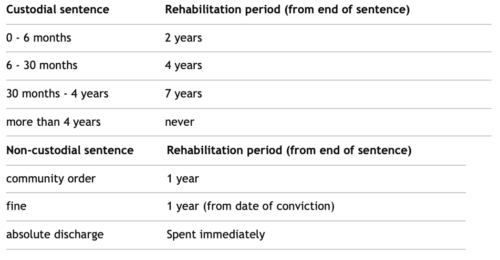Policy statement
This policy explains the approach to the recruitment of ex-offenders and aims to help employers comply with the Disclosure and Barring Service (DBS) code of practice.
Introduction
Employers are required to treat personal assistant (PA) job applicants who have a criminal record fairly and not to discriminate against anyone who is the subject of a disclosure on the basis of conviction or other information revealed.
Employers use a DBS service to help assess the suitability of PAs for positions of trust and will then view disclosure information and are obliged to comply fully with the DBS Code of Practice. https://www.gov.uk/government/publications/dbs-code-of-practice
This policy covers the main points of the DBS code of practice and is made available on the Independent Lives vacancy website page and on request to the potential or an existing employee. Adherence to this policy will ensure compliance with the DBS code of practice in this respect.
Policy
Employers will use a DBS service to assess a PA applicant’s suitability for positions of trust, we all aim to comply fully with the DBS Code of Practice and undertake to treat all applicants for positions fairly. Employers undertake not to discriminate unfairly against anyone who is the subject of a disclosure on the basis of conviction or other information revealed.
Employers are committed to the fair treatment of applicants regardless of race, gender, religion, sexual orientation, responsibilities for dependants, age, physical/mental disability, or offending background.
This policy on the recruitment of ex-offenders, is made available to all disclosure applicants at the outset of the recruitment (on the Independent Lives vacancy website page) and on request from potential or existing employees.
Employers actively promote the equality of opportunity for all and should select their PAs for interview on the basis of their aptitude, skills, qualifications and experience in relation to the requirements of the post.
A disclosure is only requested after a thorough risk assessment by the employer and this has indicated that a disclosure is both proportionate and relevant to the position concerned.
For those positions where a disclosure is required, the recruitment information will contain a statement that a disclosure will be requested in the event of the individual being offered the position.
If the role involves a regulated activity (https://www.ddc.uk.net/help-advice/what-is-regulated-activity) employers can ask questions about an applicant’s ‘unspent’ convictions as defined in the Rehabilitation of Offenders Act 1974.
A protected spent conviction is a conviction which, under the terms of Rehabilitation of Offenders Act 1974, can be effectively ignored after a specified amount of time.
The amount of time for rehabilitation depends on the sentence imposed, not on the offence. Details of what counts as a spent conviction and protected offences can be found in appendix one below.
If an offence is identified through the DBS process, the individual employer cannot make the suitability decision (whether that PA can be employed by the individual employer) Social Services, and the NHS are accountable to make these decisions.
In some of our contracted areas Independent Lives have been delegated the responsibility to make these suitability decisions, if so, we will receive details of the offence only, unless there is a safeguarding concern where the identity of the PA applicant needs to be revealed. The conditional offer of employment may need to be withdrawn in some circumstances.
The DBS Code of Practice refers to the Data Protection Act and that all information that is provided will not be kept any longer than is necessary and is kept safe and secure.
A copy of the DBS certificate in question may be requested and provided with the express consent by the individual.
Having a criminal record will not necessarily bar ex-offenders from working with individual employers. This will depend on the offence and the relevance of the offence in relation to the position applied for. The factors taken into account will include the responsibilities of the position, the vulnerability of the person requiring support, the nature of the offence(s), the number and pattern of the offences (if there is more than one), how long ago the offence(s) occurred and the age of the offender when the offence(s) occurred.
Appendix one
What counts as a spent conviction?
Convictions with a sentence of 4 years or less will become spent after a certain period of time. This is known as a ‘rehabilitation period’. Its length depends on how severe the penalty was.
Rehabilitation periods for England and Wales
The rehabilitation period is halved if you were under 18 when convicted (except for sentences of up to six months where it’s the sentence period plus 18 months).
For details of what counts as a protected offence please refer to https://www.gov.uk/government/publications/dbs-filtering-guidance/dbs-filtering-guide

